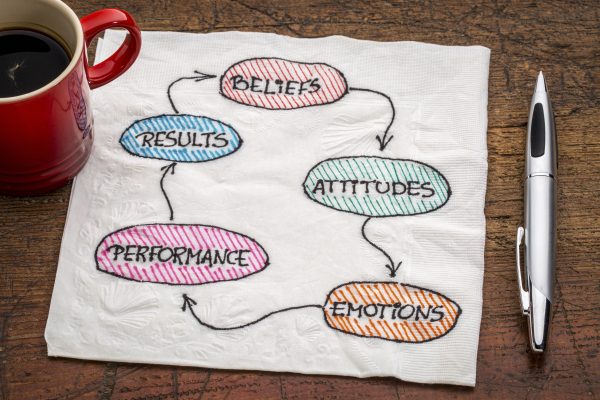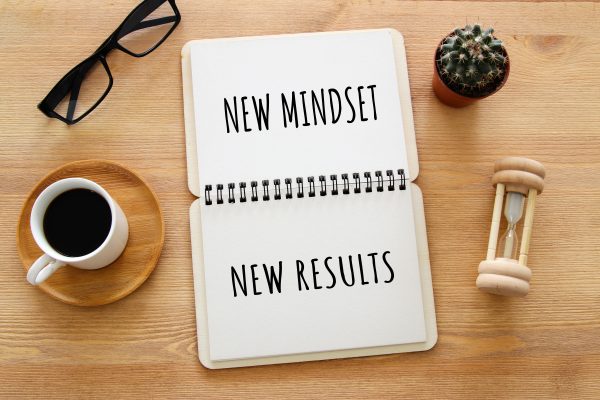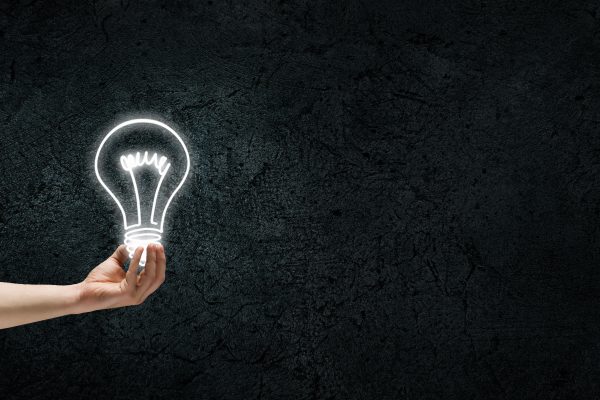Beliefs are a fundamental aspect of our lives as human beings and especially as leaders. They also govern our ability to do or not do things.
The personal development world also shares several ideas on beliefs.
Napoleon Hill, one of the first personal development authors who wrote the book Think and Grow Rich, coined the phrase, “What the mind of man can conceive and believe, the mind of man can achieve.”
Highly possible: The problem is that most of us lack belief in what we want.
Then Abraham Hicks suggests that; ‘beliefs are simply thoughts we keep thinking’.
Especially relevant when we get stuck in a pattern until someone breaks our thoughts or shows us new evidence that what we are thinking isn’t true.
Today I want to talk through where beliefs come from, how they impact our success, some beliefs you might have that really aren’t true, and some ideas to shift them.
What Are Beliefs?

They are thoughts we have that shape how we perceive the world and influence our feelings, decisions, actions, and, consequently, the results we achieve in every aspect of our lives.
Our current beliefs determine how we respond to challenges, take risks, do things others won’t, communicate with everyone, and build relationships.
Whether we are aware of it or not, our beliefs influence every aspect of our lives and play a critical role in our success as human beings on this planet.
Beliefs are not simply ideas that we hold to be true. Beliefs are emotional, thought-based systems we use to make sense of the world and determine our place.
They are the foundation on which we build our perception of reality and sense of self. Our beliefs shape how we interpret events, our attitudes and behaviours, and our overall outlook on life; be that positive or negative.
One of the most helpful ways to understand beliefs is to recognise that they are often unconscious and automatic. We often hold onto beliefs we have internalised over time, even if they no longer serve us.
We may have formed these beliefs based on past experiences, our upbringing, parents’ beliefs, early years teachers, religion, cultural norms, or societal expectations; women do x, and men do y.
Remember, it is well recognised that the first seven years of our life greatly influence our beliefs and identity, both positively and negatively.
As a result, our beliefs can limit our ability to see new possibilities and opportunities.
A shout-out for beliefs; they are incredibly useful too.
I am glad I created several beliefs when I was younger that have continued to serve me throughout my adult life; family comes first, anything is possible if I apply myself, my children are amazing, and so on.
Are Your Beliefs Holding You Back?

To become more effective leaders, it is important to be aware of our beliefs and understand how they influence our thoughts, how we feel, what we do, and the results we create in our lives.
The first step in this process is to reflect on our thinking and ask ourselves a few questions. When I am running training or coaching people, and I hear a belief that is holding someone back, I ask a few questions ;
- Of all the thoughts you could think, why are you choosing to think x or y?
- How supportive is that thought for you?
This stops the pattern our primitive brain is always running to keep us safe no matter what our
belief is and makes us think much broader and truly question what we are saying to ourselves.
So here are a few beliefs we come across in our work at Zestfor that you might want to rethink.
It Has to be Perfect
The belief that success requires perfection: Simply not true. This belief can lead to a fear of failure, an inability to take risks, an overly cautious approach to decision-making and the list goes on. How many people do you know who have made mistakes and are still successful?
Several, I imagine!
I am Not Good At; Pick Any Activity You Like!

The belief that we are not good enough is insidious and is a pet peeve of mine. I am sure you have heard a few examples of this one.
‘I am not good at planning, productivity, speaking up, writing, giving feedback, standing up for myself in meetings, managing a larger team.’
All of which can lead to subpar performance, low self-esteem, a lack of confidence, and an inability to do the right thing in difficult situations.
Any thought that you hold and you are aware you act from that place is a belief. I have shared some positive beliefs and some unhelpful ones.
Let’s now talk about different ways to shift your beliefs this year.
Once we have identified the beliefs limiting our effectiveness, the next step is to change them. This process requires a commitment to self-awareness, self-reflection, and a willingness to learn and grow.
You can start doing several things to bolster your belief systems this year.
Do a Quick Audit of The Past
Take some time to reflect on your past experiences and assess how they have shaped your beliefs.
Ask yourself questions like;
- How old were you when they started?
- Who could have put those thoughts in your head?
- Were they even true?
- What experiences have had the most impact on my beliefs?
- What beliefs have served me well in the past?
- What beliefs have limited my ability to grow and succeed?
Ask Yourself Questions That Challenge Your Own Thinking

Practice self-awareness; to change your beliefs, it is important to be aware of your thoughts, feelings, and behaviours. This involves paying attention to your emotional responses to situations and reflecting on the beliefs driving your actions.
Please write down your thoughts and challenge them with questions like.
- Is that really true?
- Where is my evidence for that?
- How often has that actually happened to me?
- Is it time to let that thought go?
- What if I could just….?
Take on New Beliefs From Others
Grab some new beliefs from others. One of the most powerful ways to change your beliefs is to seek new perspectives and challenge your assumptions.
This likely includes seeking new information, learning from others, or engaging in new experiences. It helps to surround yourself with positive influences: The people you surround yourself with can profoundly impact your beliefs.
Seek relationships with people who support and encourage you, and avoid those who bring negativity into your life.
Ready to get going?
Until next time,
Julia Carter
About Zestfor
Zestfor delivers training coaching and development programs and resources scientifically tailored to develop people in technical markets – including Pharmaceutical, I.T., and Life Sciences.
Our blend of in-classroom, online, and virtual live-stream delivery methods will engage and assure even the most introverted team members from the first meeting. Let us arrange a brief chat; call us at 0845 548 0833.









